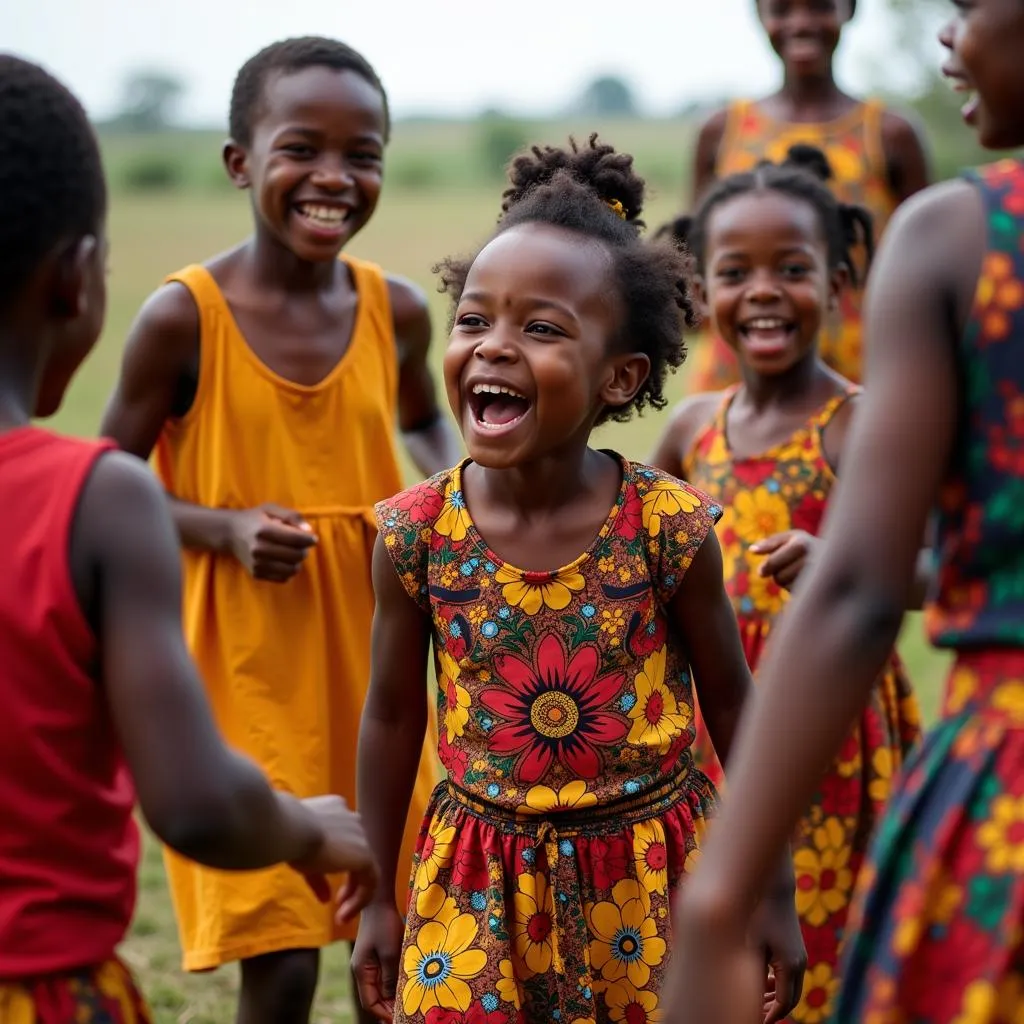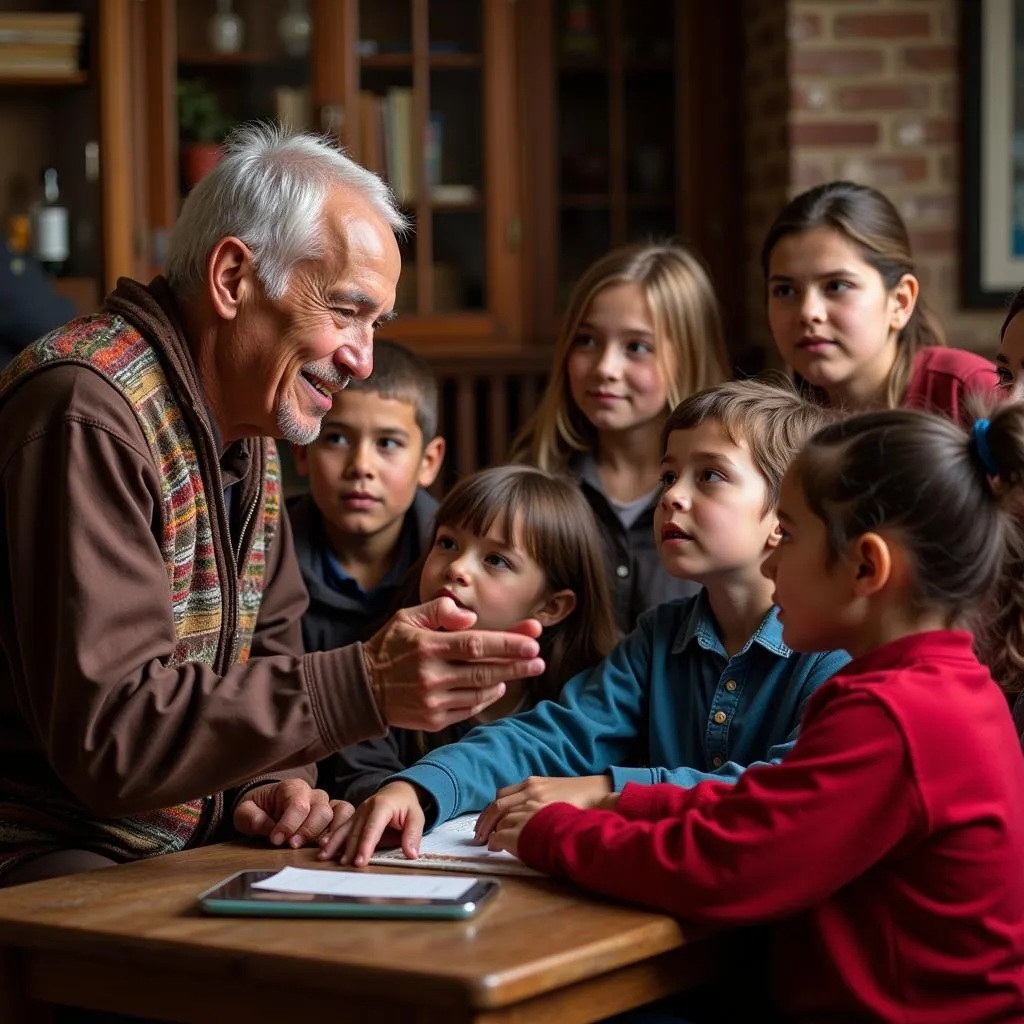African Children’s Songs and Lyrics: A Joyful Journey into Culture
African children’s songs and lyrics offer a vibrant tapestry of melody, rhythm, and storytelling. More than just entertainment, these songs serve as vital tools for education, socialization, and cultural transmission, echoing the values, beliefs, and experiences of diverse communities across the continent.
 African children singing and dancing in a circle
African children singing and dancing in a circle
The Power of Music in Child Development
Across Africa, music is intricately woven into the fabric of everyday life. From a tender age, children are immersed in a rich soundscape of songs, rhythms, and instruments. This early exposure fosters a deep appreciation for music, nurturing creativity, language skills, and cognitive development.
Themes and Messages: Reflecting Life and Values
African children’s songs explore a diverse range of themes, reflecting the realities of their lives and the values cherished within their communities. Nature often takes center stage, with songs celebrating animals, plants, and the changing seasons. Lullabies soothe and comfort, while playful tunes accompany games and dances. Many songs impart essential life lessons, teaching about respect, responsibility, and community values.
Rhythm and Repetition: Engaging Young Minds
Repetition plays a key role in African children’s songs, making them easy to learn and remember. Catchy melodies and infectious rhythms invite participation, encouraging children to sing, clap, and dance along. Call-and-response patterns are common, fostering interaction and a sense of shared experience.
Language and Linguistics: A Foundation for Learning
Through songs, children are introduced to the nuances of their native language, expanding their vocabulary and developing their communication skills. The rhythmic patterns and repetitive phrases aid in language acquisition, while the playful nature of the songs makes learning enjoyable.
 Group of children learning traditional song from elder
Group of children learning traditional song from elder
Cultural Transmission: Keeping Traditions Alive
African children’s songs serve as vital vessels of cultural heritage, passing down traditions, stories, and values from one generation to the next. These songs preserve ancestral knowledge, ensuring the continuity of cultural identity and fostering a sense of belonging.
Conclusion
African children’s songs and lyrics offer a captivating window into the rich tapestry of African culture. More than just entertainment, these songs play a vital role in child development, education, and the transmission of cultural heritage. By embracing these songs, we celebrate the diversity, creativity, and resilience of African communities, recognizing the power of music to unite and inspire.
